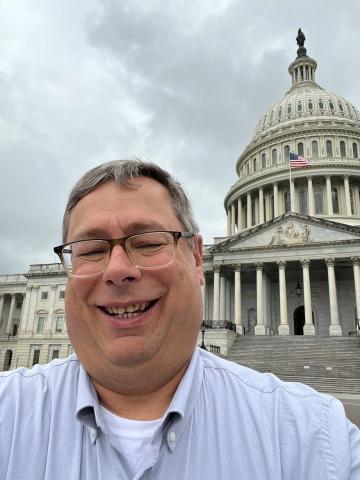Project Echo - CKD Hub Committee Member
Keith Plummer is an advocate and peer mentor for kidney patients. Keith has worked for same company for 40 years. The company started in local New England, but now has more than 280 locations in US, Mexico and Canada. Keith retired in September of 2022. Keith lost his right kidney 20 years ago to kidney cancer and damaged his left to about 20% function. Keith started dialysis in center 7 years ago and did home hemo for 4 1/2 years. Keith was transplanted in April 2023 and things are going well.
